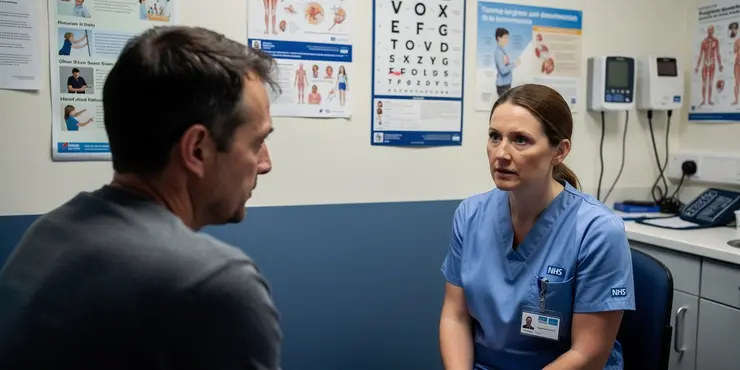
Find Help
More Items From Ergsy search
-
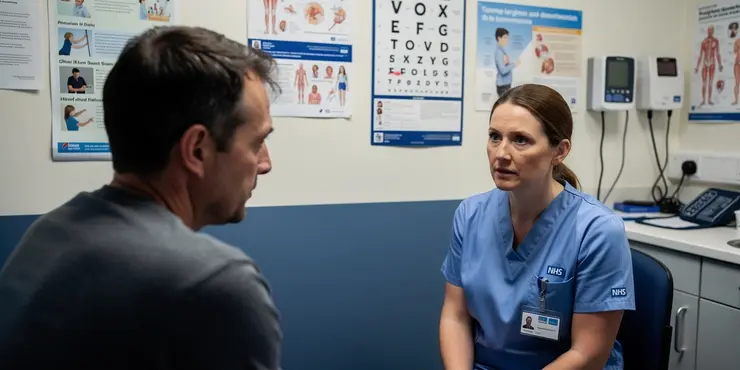
How soon should you see a doctor if you suspect appendicitis?
Relevance: 100%
-
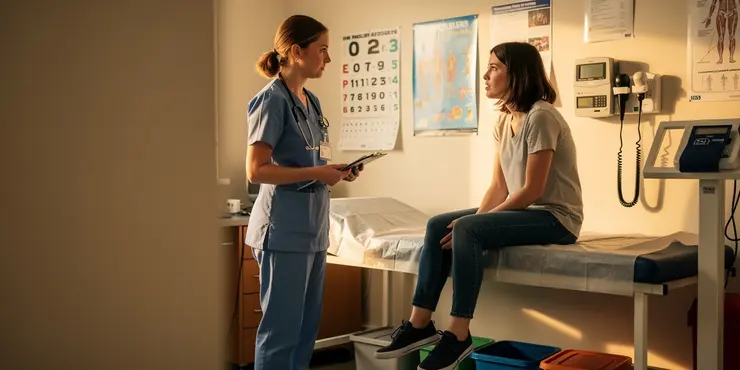
How is appendicitis diagnosed?
Relevance: 86%
-
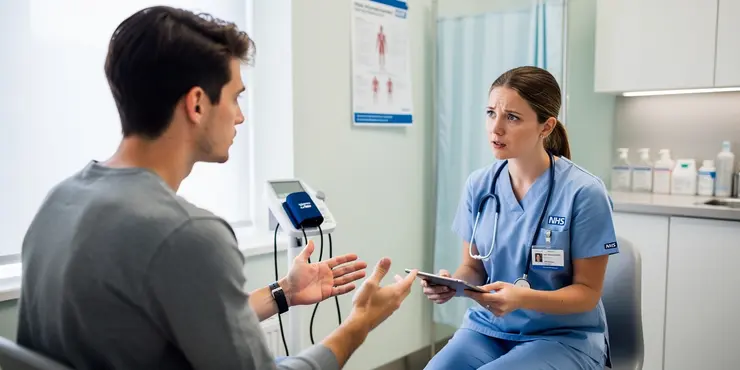
What is Appendicitis?
Relevance: 82%
-
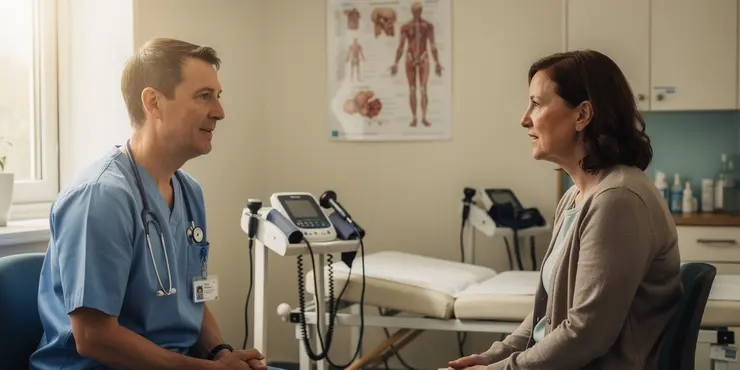
Is appendicitis hereditary?
Relevance: 80%
-
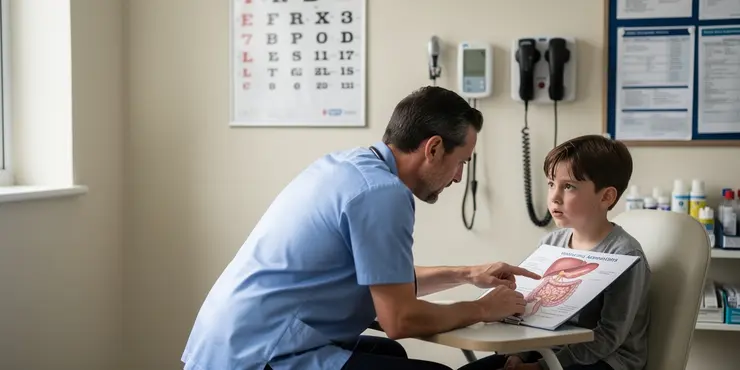
What is the likelihood of needing surgery for suspected appendicitis?
Relevance: 78%
-

Can appendicitis go away on its own?
Relevance: 78%
-
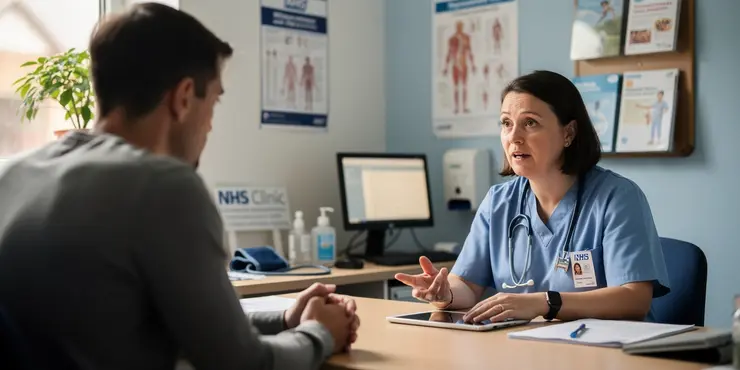
Can appendicitis be treated with antibiotics?
Relevance: 77%
-
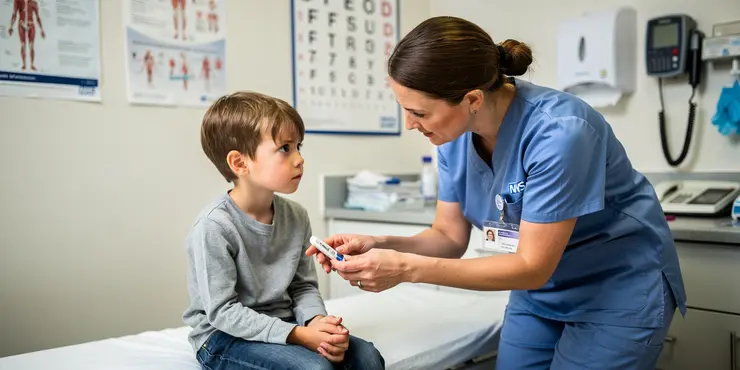
What causes appendicitis?
Relevance: 76%
-
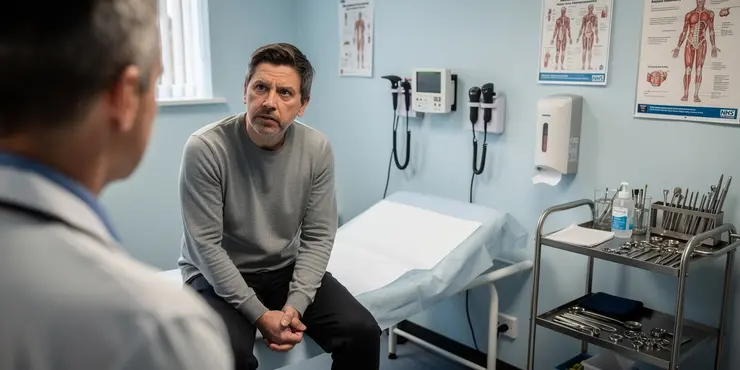
What happens if appendicitis is left untreated?
Relevance: 75%
-
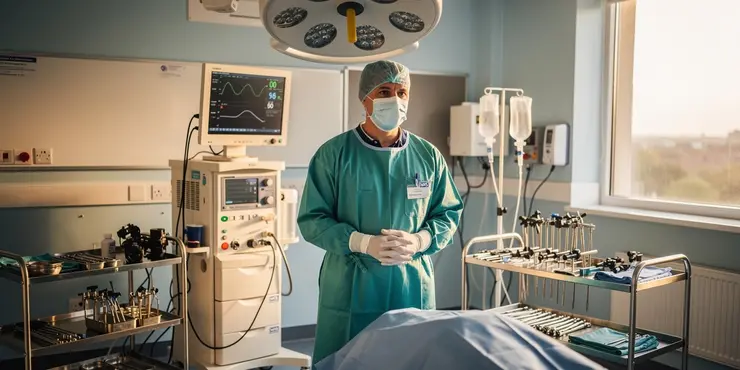
What is the treatment for appendicitis?
Relevance: 74%
-
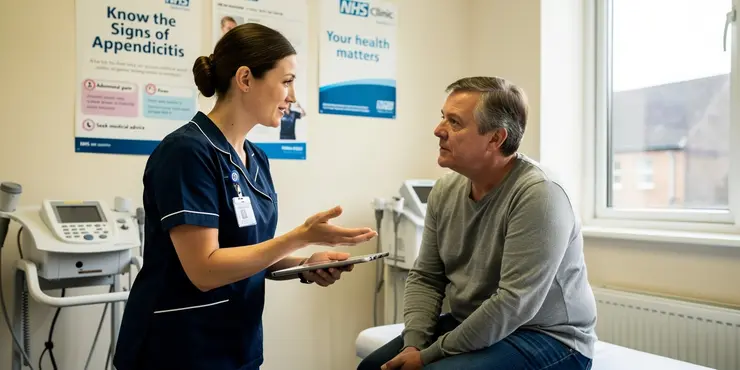
What are the common symptoms of appendicitis?
Relevance: 73%
-
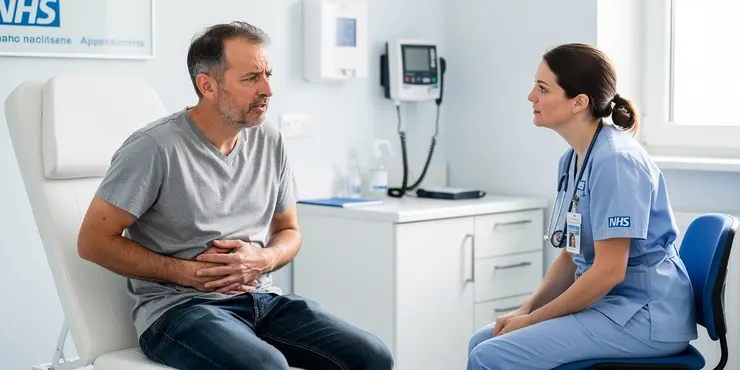
What are the potential complications of appendicitis?
Relevance: 71%
-
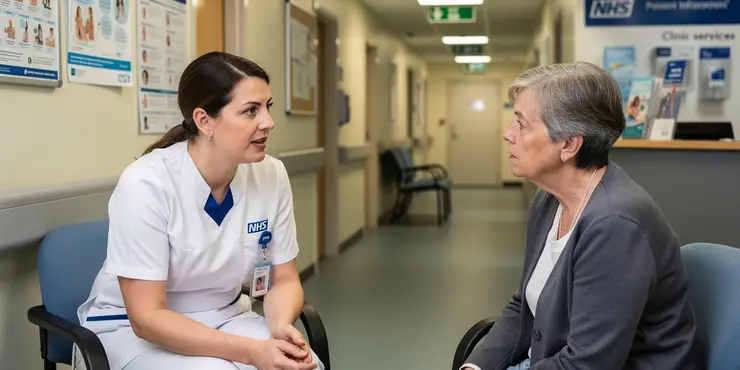
Can appendicitis occur more than once?
Relevance: 69%
-
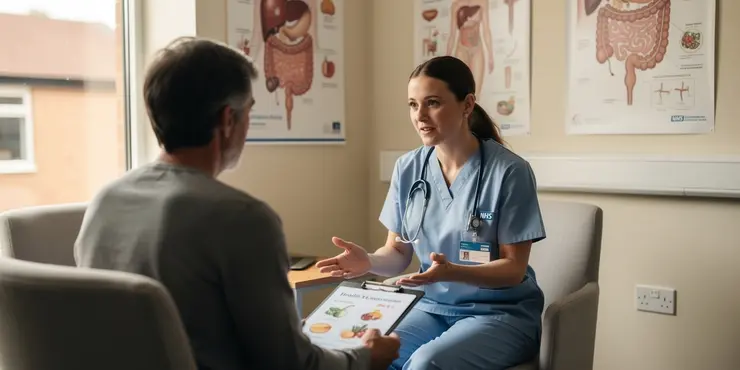
Can diet or lifestyle changes prevent appendicitis?
Relevance: 69%
-
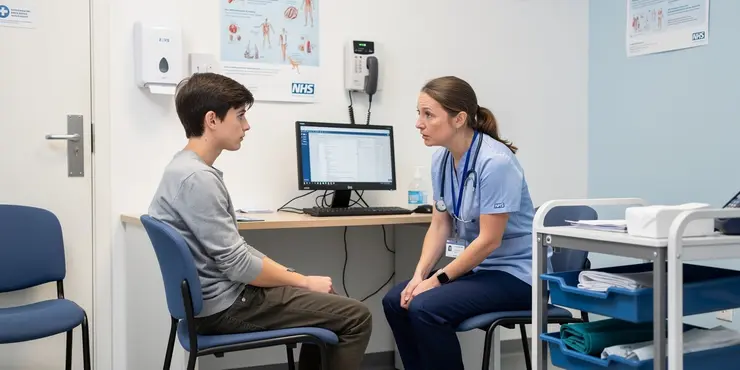
Is appendicitis common in any particular age group?
Relevance: 69%
-
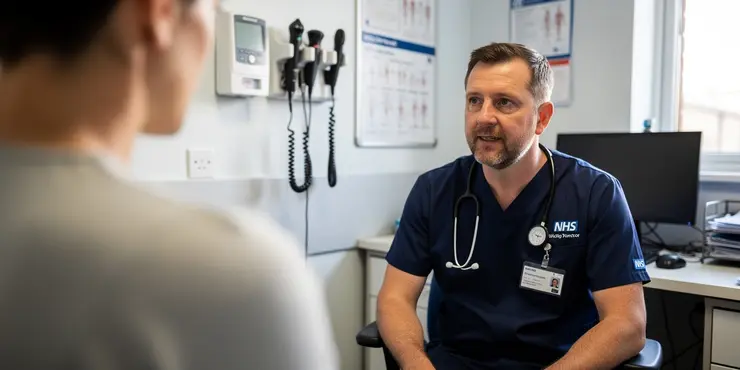
How is appendicitis different from other causes of abdominal pain?
Relevance: 68%
-
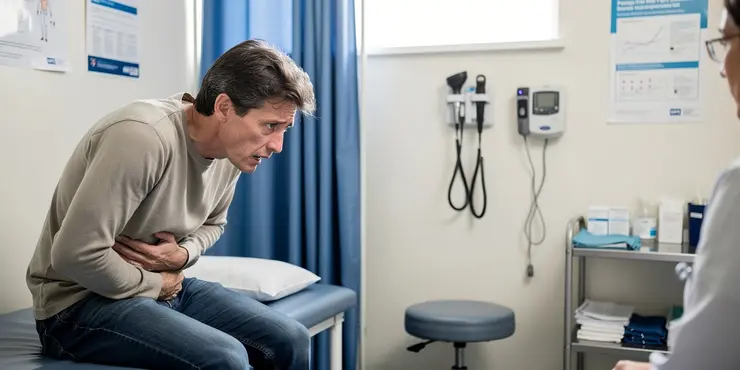
Where is the pain located when you have appendicitis?
Relevance: 67%
-
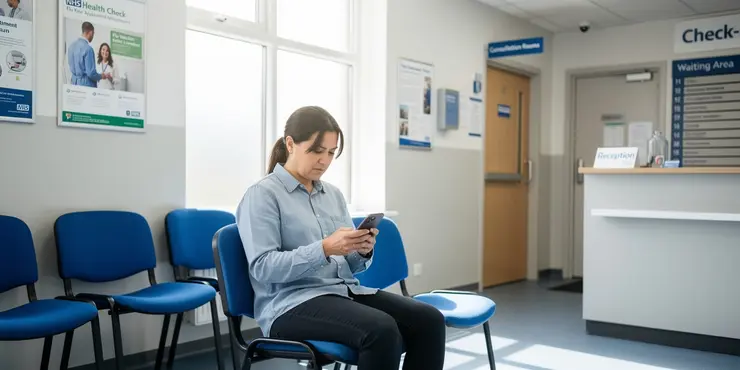
Will I see a doctor?
Relevance: 56%
-
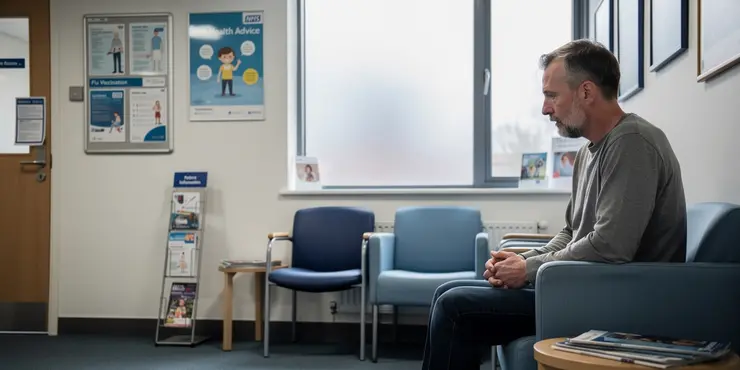
Should I see a doctor for a cold?
Relevance: 46%
-
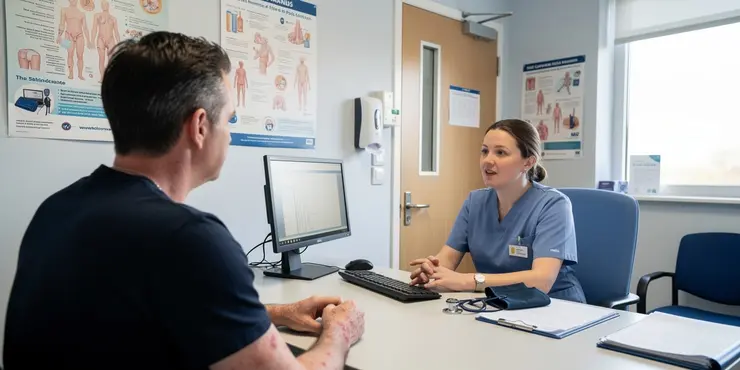
When should I see a doctor for psoriasis?
Relevance: 45%
-
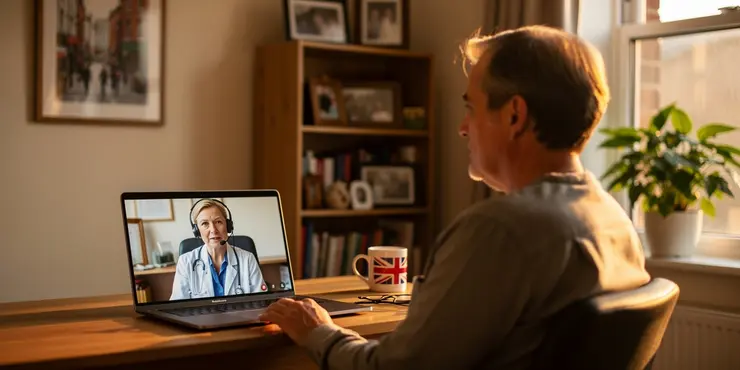
Can I receive teleconsultations with EU doctors before traveling?
Relevance: 45%
-
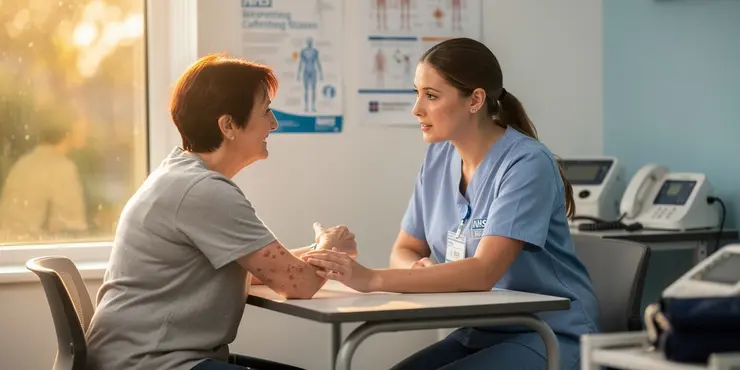
When should I see a doctor for nettle rash?
Relevance: 44%
-
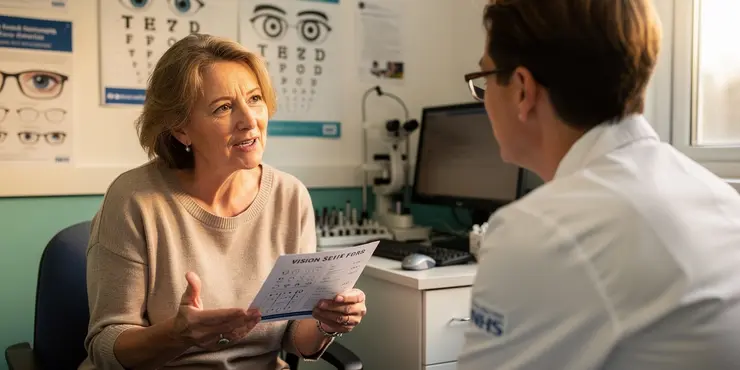
Should I share the results of my self-tests with my eye doctor?
Relevance: 43%
-
Does my doctor have access to operation waiting times?
Relevance: 43%
-
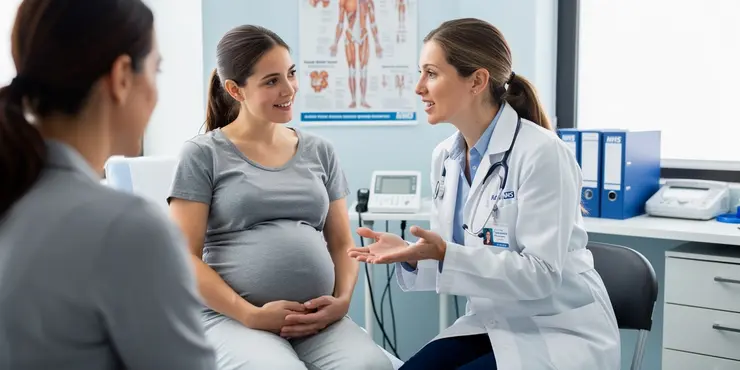
Do I need to consult a doctor before exercising during pregnancy?
Relevance: 42%
-
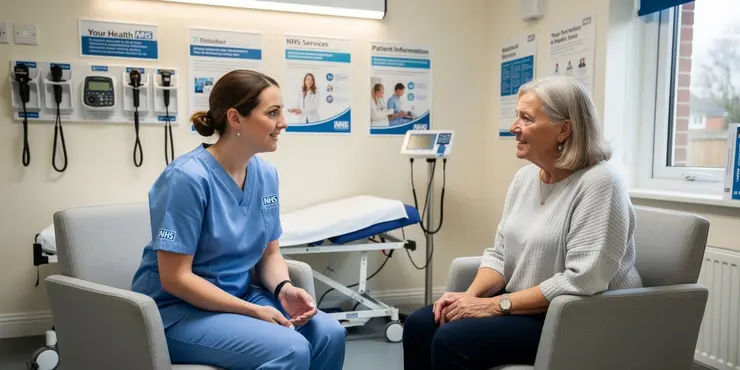
How often should someone with asthma see a doctor?
Relevance: 42%
-
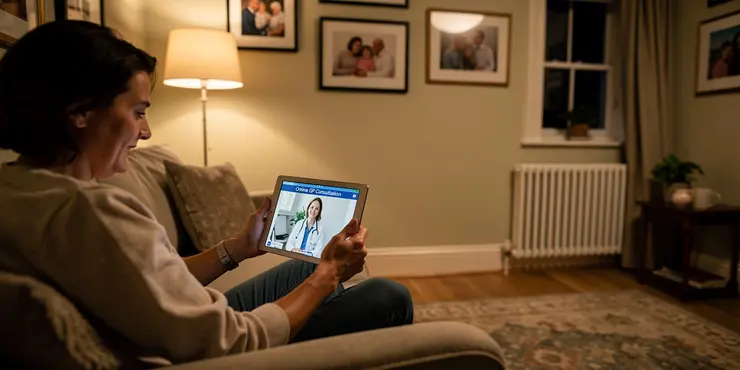
Will I still have access to doctors and nurses on a virtual ward?
Relevance: 41%
-
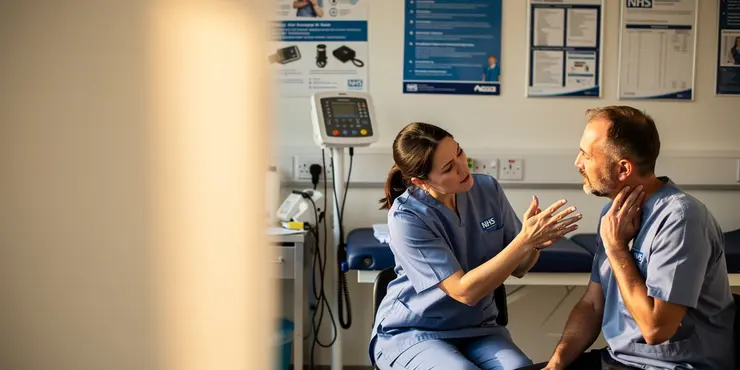
Is it necessary to see a doctor for whiplash after a car accident?
Relevance: 41%
-
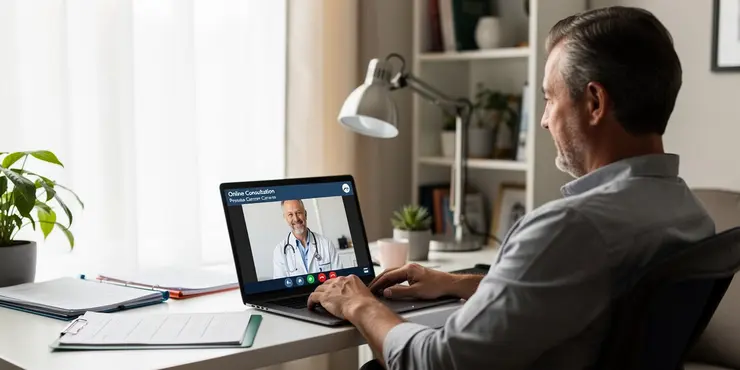
Can I consult with NHS doctors online for prostate cancer?
Relevance: 39%
-
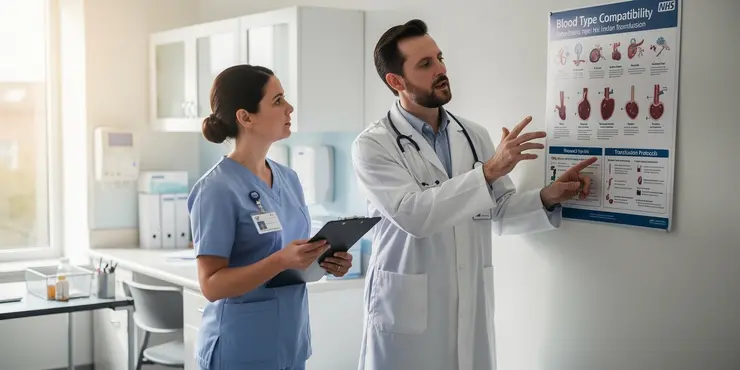
How do doctors determine how much blood is needed for a transfusion?
Relevance: 39%
-
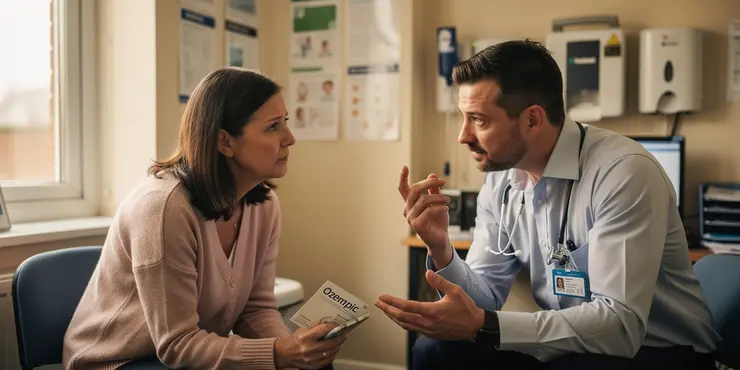
What should I discuss with my doctor before starting Ozempic?
Relevance: 38%
-
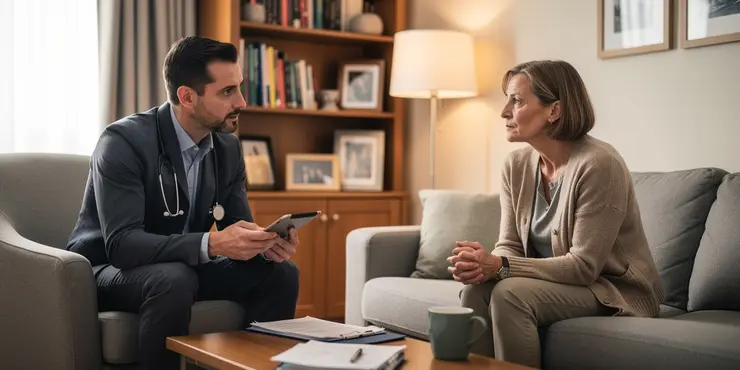
What should I discuss with my doctor before starting Ozempic?
Relevance: 38%
-

Can you live without an appendix?
Relevance: 35%
-
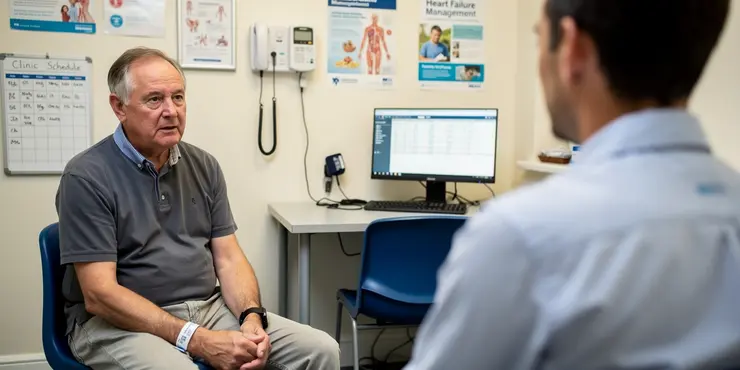
How often should someone with heart failure see their doctor?
Relevance: 33%
-
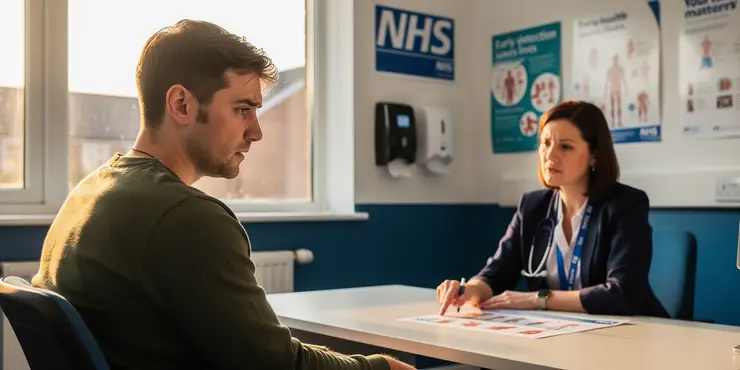
When should I see a doctor about potential testicular cancer?
Relevance: 32%
-
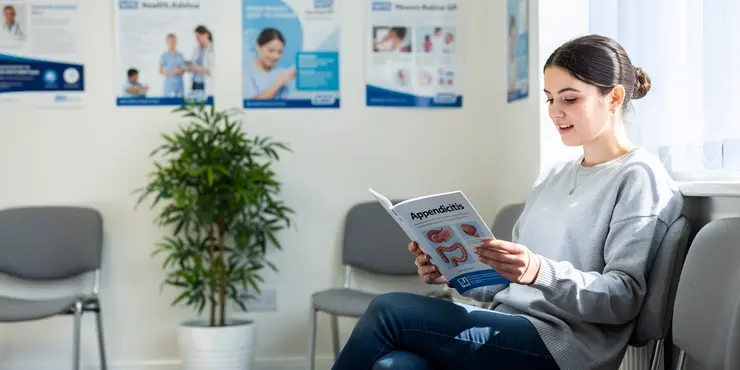
Are there any risk factors for appendicitis?
Relevance: 32%
-
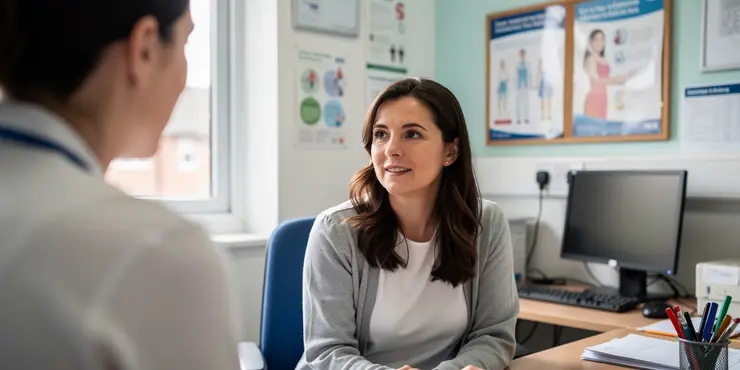
Stomach ache and abdominal pain
Relevance: 29%
-
How do I know if my surgery is considered elective or urgent?
Relevance: 20%
-
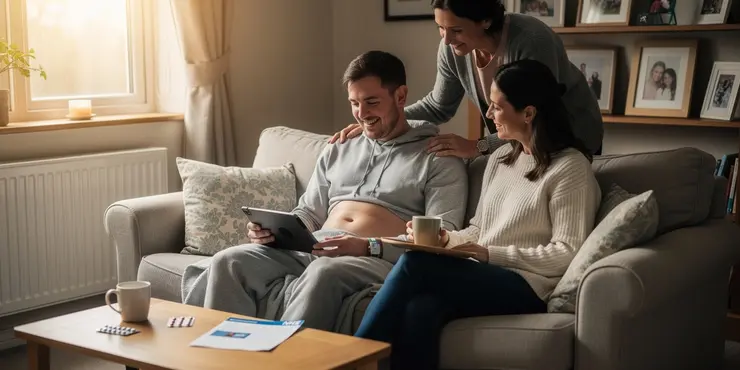
How long is the recovery time after an appendectomy?
Relevance: 18%
-
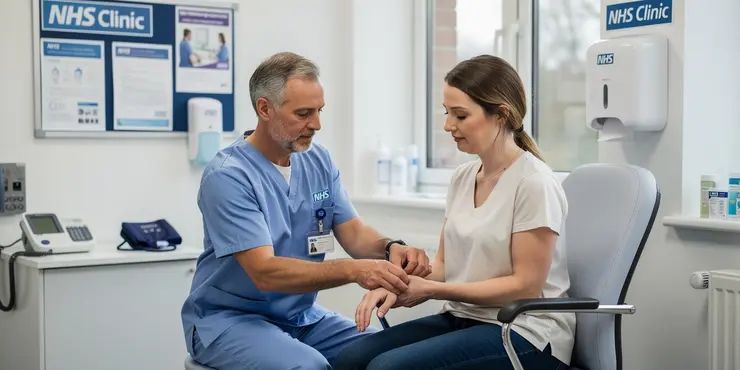
How is Carpal Tunnel Syndrome diagnosed?
Relevance: 15%
Understanding Appendicitis
Appendicitis is a medical emergency that occurs when the appendix, a small tube-like organ attached to the large intestine, becomes inflamed. The condition can cause severe pain and requires prompt medical treatment, usually surgical removal of the appendix. Recognising the symptoms early and seeking timely medical attention is crucial to avoid complications such as a ruptured appendix, which can lead to more serious health issues.
Recognising the Symptoms
Typical symptoms of appendicitis include abdominal pain, usually starting near the belly button and then moving to the lower right side of the abdomen. The pain typically worsens with time. Other symptoms may include nausea, vomiting, loss of appetite, fever, and constipation or diarrhoea. If you or someone else is experiencing these symptoms, it’s important to consider appendicitis as a possibility and take immediate action.
When to See a Doctor
If you suspect you have appendicitis, it is crucial to see a doctor as soon as possible. In the UK, seeking immediate medical attention by calling your GP, NHS 111, or visiting A&E is essential. The NHS recommends not delaying visiting a medical professional if you are experiencing acute abdominal pain coupled with other symptoms of appendicitis. Speedy diagnosis and treatment can greatly reduce the risk of complications.
Diagnosis and Treatment
Upon consulting a healthcare professional, several diagnostic tests may be conducted to confirm appendicitis. These may include a physical examination, blood tests, ultrasound, or a CT scan. If appendicitis is confirmed, the most common treatment is an appendectomy, a surgical procedure to remove the appendix. This surgery is usually performed laparoscopically, which is minimally invasive and involves a shorter recovery time.
What to Do While You Wait
If medical help is on the way or you are heading to the hospital, try to avoid eating or drinking, as surgery is often required quickly for appendicitis. Pain medication can be taken, but it's essential to consult with a healthcare professional before doing so. Lying down and resting can also help manage discomfort while waiting for medical evaluation.
Conclusion
Appendicitis is a serious condition that requires urgent medical attention. Recognising the signs and acting quickly can prevent complications and lead to a full recovery. If you suspect that you or someone else has appendicitis, it's essential to see a doctor promptly. In the UK, the NHS provides excellent resources and services for addressing such emergencies efficiently. Do not hesitate to seek medical advice if you experience symptoms associated with appendicitis.
What is Appendicitis?
Appendicitis is when a small part of your body, called the appendix, gets sick and swollen. The appendix is a little tube attached to your big intestine. When it hurts, you need help from a doctor quickly. You might need an operation to take it out. It’s important to get help fast to stop the appendix from breaking, which can make you more sick.
How to Know if You Have Appendicitis
If you have appendicitis, your tummy will hurt. It usually starts around your belly button and then moves to the right side of your tummy. The pain gets worse with time. You might also feel sick, want to throw up, not feel like eating, have a fever, or have trouble with your toilet habits (either not going or going too much). If you feel these things, it might be appendicitis, so you should get help quickly.
When to Visit the Doctor
If you think you have appendicitis, see a doctor right away. In the UK, you can call your doctor, NHS 111, or go to the hospital emergency room (A&E). Don’t wait if your tummy really hurts and you have signs of appendicitis. Seeing the doctor fast can help you get better without problems.
How Do Doctors Help?
At the doctor’s office or hospital, they will check if you have appendicitis. They might examine your tummy, take your blood, do an ultrasound, or use a CT scan to look inside. If you have appendicitis, you will probably need an operation called an appendectomy. They usually do this with small cuts, so you can get better fast.
What to Do Before Seeing the Doctor
While you wait to see the doctor, try not to eat or drink. This is because you might need an operation soon. You can take medicine to help the pain, but ask a doctor first. Lying down and resting can help with the pain, too.
Final Thoughts
Appendicitis is serious and needs a doctor’s help right away. Knowing the signs and seeing the doctor quickly can help you get better. If you think you or someone else has appendicitis, visit the doctor fast. In the UK, the NHS is good at helping with these problems quickly. Always ask a doctor if you feel sick like this.
Frequently Asked Questions
What are the typical symptoms of appendicitis?
Typical symptoms include sharp pain in the lower right abdomen, loss of appetite, nausea, vomiting, and fever.
How quickly do appendicitis symptoms progress?
Symptoms can progress rapidly, often within 24 to 48 hours.
Why is it important to see a doctor if you suspect appendicitis?
It's important because untreated appendicitis can lead to a ruptured appendix, which is a serious medical emergency.
When should I seek medical attention for appendicitis?
You should seek medical attention as soon as you suspect appendicitis, ideally within hours of symptom onset.
What is the risk of delaying medical treatment for suspected appendicitis?
Delaying treatment increases the risk of appendix rupture, which can lead to peritonitis and other complications.
Can appendicitis symptoms go away on their own?
While symptoms might temporarily improve, appendicitis does not go away on its own and requires surgery.
What tests do doctors use to diagnose appendicitis?
Doctors may use a physical exam, blood tests, ultrasound, or a CT scan to diagnose appendicitis.
Can appendicitis be treated with antibiotics alone?
In some cases, antibiotics may be used temporarily, but surgery is generally needed to remove the appendix.
Is there a specific age group more at risk for appendicitis?
Appendicitis is most common in people aged 10 to 30, but it can occur at any age.
Can appendicitis be prevented?
There is no sure way to prevent appendicitis, but a diet high in fiber may reduce risk.
What is the treatment for appendicitis?
The standard treatment is an appendectomy, which is the surgical removal of the appendix.
How urgent is surgery for appendicitis?
Surgery is usually performed as soon as possible to prevent rupture and complications.
What should I do if my child has symptoms of appendicitis?
Take your child to a doctor or emergency room immediately if you suspect appendicitis.
How can I differentiate between stomach flu and appendicitis?
Appendicitis pain typically intensifies and localizes in the lower right abdomen, whereas stomach flu symptoms may not.
Can appendicitis be mistaken for other conditions?
Yes, conditions such as urinary tract infections and gastrointestinal issues can mimic appendicitis symptoms.
When is appendicitis most likely to worsen?
Appendicitis can worsen rapidly, often within 24 to 72 hours after symptoms start.
What should I avoid doing if I suspect appendicitis?
Avoid eating, drinking, taking pain medications, or using laxatives, as these can complicate surgical evaluation.
Why is timely diagnosis of appendicitis crucial?
Timely diagnosis can prevent rupture of the appendix and minimize complications.
Is it possible for the pain from appendicitis to be mild?
While pain is often severe, it can sometimes be mild initially, but it will usually worsen.
What are the potential complications of untreated appendicitis?
Untreated appendicitis can cause a ruptured appendix, leading to peritonitis or abscess formation.
What are the common signs of appendicitis?
Appendicitis means your appendix is swollen and sore. Here are signs to watch for:
- Tummy pain, often on the lower right side
- Feeling sick or throwing up
- Not feeling like eating
- High temperature or fever
- Tummy feels hard when you touch it
If you have these signs, tell an adult and see a doctor. You can use pictures or ask someone to help. A doctor can give you the right care.
Common signs are a strong pain in the lower right tummy, feeling less hungry, feeling sick, throwing up, and having a fever.
How fast do signs of appendicitis show up?
Appendicitis is when a small part inside your tummy gets sick. This makes your tummy hurt.
Here are some signs of appendicitis:
- Belly pain that starts near your belly button and moves to the lower right side.
- Feeling sick or throwing up.
- No appetite or not feeling hungry.
- Tummy gets bigger or feels full.
- Fever or feeling very warm.
If you have these signs, tell a grown-up or a doctor quickly.
Sometimes the signs can get worse in a few hours or up to a day.
Looking at pictures or using a computer tablet can help you understand better.
Signs of getting sick can happen fast, often in 1 to 2 days.
Why should you see a doctor if you think you have appendicitis?
If you think you have appendicitis, it is important to see a doctor. Appendicitis can make you very sick. The appendix can burst and cause a big problem inside your belly.
A doctor can help you feel better. They can decide what to do next. It is important to get help quickly.
Ask an adult to help you call the doctor. Use simple words to explain how you feel.
You can use pictures or drawings to show where it hurts.
It's important to treat appendicitis. If you don't, the appendix can burst. This is very serious and needs a doctor right away.
When do I need to see a doctor for appendicitis?
If you think you have appendicitis, go see a doctor. It can be very serious if you do not get help. Here are signs you should watch for:
- Bad pain in your belly, especially on the right side.
- Feeling sick or throwing up.
- A fever or feeling really hot.
- No appetite or not feeling hungry.
If you have any of these symptoms, tell an adult you trust and get help right away.
If you think you might have appendicitis, it's important to see a doctor quickly. Try to go to the doctor within a few hours after you start to feel sick.
What happens if you wait to get help for a sore appendix?
If your appendix hurts and you wait too long to see a doctor, it could be bad. It can burst, which is very serious. It's important to get help quickly.
Here are some tips:
- Tell an adult if your belly hurts a lot.
- Go to the doctor as soon as you can.
- Use pictures or simple words to explain how you feel.
- Ask a friend or family member to help you talk to the doctor.
Waiting to get help can make your appendix burst. This can cause a big problem in your belly called peritonitis and other issues.
Can signs of a sore appendix get better without help?
Appendicitis is when a part of your tummy called the appendix gets very sore and can make you feel sick. It won't get better by itself. You need an operation to fix it.
How do doctors find out if you have appendicitis?
Doctors use different tests to check if you have appendicitis. Here are some ways they do it:
- Ask Questions: The doctor will talk to you and ask about your tummy pain.
- Feel Your Tummy: The doctor will gently press on your tummy to see where it hurts.
- Blood Test: A blood test can show if your body is fighting an infection.
- Ultrasound or CT Scan: These are pictures of the inside of your tummy. They help doctors see if your appendix is swollen.
If you think you have appendicitis, it's important to see a doctor. They know how to help.
Doctors can find out if someone has appendicitis by doing different tests. They might:
- Look at the body (physical exam)
- Check the blood (blood tests)
- Use a special machine to see inside the body (ultrasound or CT scan)
Can medicine fix a sore appendix?
Sometimes medicine can help for a little while. But usually, the doctor needs to do an operation to take out the appendix.
Who is more likely to get appendicitis?
Some people get sick with appendicitis more often. This usually happens to kids and teens. But grown-ups can get it too.
If you are worried, it is good to talk to a doctor or nurse.
Using pictures or videos can help you understand more about appendicitis.
Appendicitis happens more often in people who are between 10 and 30 years old. But anyone can get it, no matter how old they are.
Can you stop appendicitis from happening?
We can't stop appendicitis for sure. But eating lots of foods with fiber might help make the risk less. Fiber is in fruits, vegetables, and whole grains.
How do doctors fix a sore appendix?
If your appendix hurts, doctors can help you. They might do an operation to take it out. This is called surgery. After surgery, you will rest and take medicine to feel better.
Tools that can help you understand:
- Pictures of the body and appendix
- Simple videos about surgery
- Talking to a friendly doctor or nurse
The usual treatment is to have an operation called an appendectomy. This means doctors take out your appendix.
How quickly do you need surgery for appendicitis?
Appendicitis means your appendix is sick. It needs help. Surgery is important. You should get it done soon. This keeps you safe.
Here are some tools to help:
- Ask an adult to explain things.
- Use a picture to understand better.
- Watch a video to learn more.
Surgery is when doctors do an operation to help someone get better. Doctors do this quickly to stop any problems from happening.
What to do if my child has signs of appendicitis?
If your child has a sore tummy, they might have appendicitis. Here’s what you can do:
- Notice any pain in the lower right side of the tummy.
- See if they feel sick or have a fever.
- If you think it might be appendicitis, call a doctor right away.
You can use a diary to write down their symptoms. This can help the doctor understand what is happening. You can also use pictures or drawings to show where the pain is.
If you think your child might have appendicitis, take them to a doctor or hospital right away.
How do I tell if I have a stomach bug or appendicitis?
Appendicitis pain usually gets stronger and is felt in the bottom right side of your tummy. Stomach flu might not do this.
Can other illnesses be confused with appendicitis?
Yes, sometimes things like bladder infections or stomach problems can look like appendicitis.
When does appendicitis get worse?
Appendicitis can get bad quickly. This can happen in 1 to 3 days after you feel sick.
What should I not do if I think I have appendicitis?
If you think your appendix is sick, follow these simple tips. They will help you stay safe.
- Do not eat or drink. It can make things worse.
- Do not use heat packs on your belly. They can cause more pain.
- Do not take pain medicine. It can hide the problem.
- Ask an adult to take you to a doctor. They can help you feel better.
For help, use pictures or simple words to understand this better. You can also ask an adult or a friend to explain it to you.
Do not eat or drink anything. Do not take medicine for pain or constipation. These can make it harder for doctors to check your health before surgery.
Why is it important to know if you have appendicitis quickly?
Finding out if someone has a sore appendix quickly can stop it from breaking. This helps keep the person safe and healthy.
Can appendicitis pain be mild?
Appendicitis is when your appendix gets inflamed. It can make your tummy hurt. Usually, it hurts a lot, but sometimes it might hurt just a little. If you have a tummy ache that won't go away, tell a grown-up or see a doctor.
Helpful tips:
- Ask someone to help you understand.
- Draw a picture of where it hurts.
- Use a thermometer to check for a fever.
Pain can hurt a lot. Sometimes it starts small, but it usually gets worse.
What can happen if appendicitis is not treated?
Appendicitis means your appendix is sick and can hurt a lot. If you don't see a doctor, here are some problems that might happen:
- Your appendix could burst, causing a serious belly infection.
- You might get an abscess, which is a pocket of pus.
- Your whole body might get sick, called sepsis.
If your belly hurts a lot, ask an adult to take you to the doctor. Doctors can help you feel better. You can use pictures or ask a friend to help understand this better.
If you don't treat appendicitis, your appendix can burst. This can make you very sick and cause a serious infection called peritonitis, or a pocket of pus called an abscess.
Useful Links
This website offers general information and is not a substitute for professional advice.
Always seek guidance from qualified professionals.
If you have any medical concerns or need urgent help, contact a healthcare professional or emergency services immediately.
Some of this content was generated with AI assistance. We’ve done our best to keep it accurate, helpful, and human-friendly.
- Ergsy carfully checks the information in the videos we provide here.
- Videos shown by Youtube after a video has completed, have NOT been reviewed by ERGSY.
- To view, click the arrow in centre of video.
- Most of the videos you find here will have subtitles and/or closed captions available.
- You may need to turn these on, and choose your preferred language.
- Go to the video you'd like to watch.
- If closed captions (CC) are available, settings will be visible on the bottom right of the video player.
- To turn on Captions, click settings .
- To turn off Captions, click settings again.
More Items From Ergsy search
-

How soon should you see a doctor if you suspect appendicitis?
Relevance: 100%
-

How is appendicitis diagnosed?
Relevance: 86%
-

What is Appendicitis?
Relevance: 82%
-

Is appendicitis hereditary?
Relevance: 80%
-

What is the likelihood of needing surgery for suspected appendicitis?
Relevance: 78%
-

Can appendicitis go away on its own?
Relevance: 78%
-

Can appendicitis be treated with antibiotics?
Relevance: 77%
-

What causes appendicitis?
Relevance: 76%
-

What happens if appendicitis is left untreated?
Relevance: 75%
-

What is the treatment for appendicitis?
Relevance: 74%
-

What are the common symptoms of appendicitis?
Relevance: 73%
-

What are the potential complications of appendicitis?
Relevance: 71%
-

Can appendicitis occur more than once?
Relevance: 69%
-

Can diet or lifestyle changes prevent appendicitis?
Relevance: 69%
-

Is appendicitis common in any particular age group?
Relevance: 69%
-

How is appendicitis different from other causes of abdominal pain?
Relevance: 68%
-

Where is the pain located when you have appendicitis?
Relevance: 67%
-

Will I see a doctor?
Relevance: 56%
-

Should I see a doctor for a cold?
Relevance: 46%
-

When should I see a doctor for psoriasis?
Relevance: 45%
-

Can I receive teleconsultations with EU doctors before traveling?
Relevance: 45%
-

When should I see a doctor for nettle rash?
Relevance: 44%
-

Should I share the results of my self-tests with my eye doctor?
Relevance: 43%
-
Does my doctor have access to operation waiting times?
Relevance: 43%
-

Do I need to consult a doctor before exercising during pregnancy?
Relevance: 42%
-

How often should someone with asthma see a doctor?
Relevance: 42%
-

Will I still have access to doctors and nurses on a virtual ward?
Relevance: 41%
-

Is it necessary to see a doctor for whiplash after a car accident?
Relevance: 41%
-

Can I consult with NHS doctors online for prostate cancer?
Relevance: 39%
-

How do doctors determine how much blood is needed for a transfusion?
Relevance: 39%
-

What should I discuss with my doctor before starting Ozempic?
Relevance: 38%
-

What should I discuss with my doctor before starting Ozempic?
Relevance: 38%
-

Can you live without an appendix?
Relevance: 35%
-

How often should someone with heart failure see their doctor?
Relevance: 33%
-

When should I see a doctor about potential testicular cancer?
Relevance: 32%
-

Are there any risk factors for appendicitis?
Relevance: 32%
-

Stomach ache and abdominal pain
Relevance: 29%
-
How do I know if my surgery is considered elective or urgent?
Relevance: 20%
-

How long is the recovery time after an appendectomy?
Relevance: 18%
-

How is Carpal Tunnel Syndrome diagnosed?
Relevance: 15%


